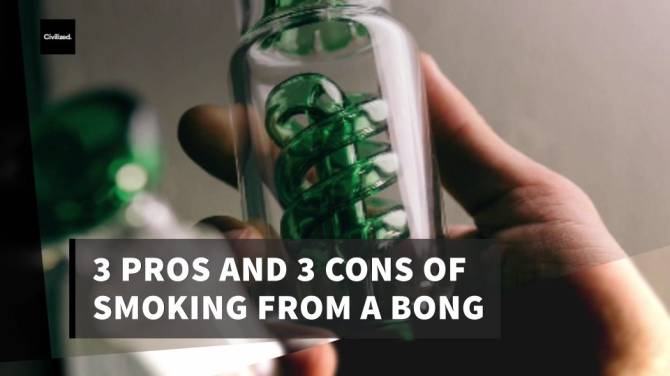

An awkward fact about cannabis is that the most obvious way to consume it is to light it on fire and breathe it into your lungs.
But for decades, Canadians have been told in the sternest terms to not smoke and have been barred from smoking around other people (Halifax has gone so far as to ban nearly all public smoking).
And far fewer people smoke — smoke tobacco, that is — than a generation ago.
All of which raises the question: how bad for you is smoking weed?
READ MORE:
How long does cannabis stay in your system?
“We’re not sure,” says Rebecca Jesseman of the Canadian Centre on Substance Use and Addiction.
“We don’t have enough evidence yet. We know that inhaling any hot vapour can damage sensitive lung tissue and cause damage to your respiratory system.
“Some of the effects that we see with regular long-term use include chronic coughing, wheezing, things like a tight chest, sore throat and aggravation of chronic bronchitis.”
Unlike tobacco, no study has shown a clear link between cancer and smoking cannabis. A 2005 study found “little evidence for an increased risk of lung cancer among habitual or long-term cannabis smokers,” and a 2018 study said that there was “currently no clear association between cannabis smoking and lung cancer.”
WATCH: Pros and cons of smoking cannabis from a bong

“In terms of the contribution to cancer, for example, we do know that cannabis smoke contains many of the same chemicals that tobacco smoke does, some of which are known to cause cancer,” Jesseman says.
However, there have been obstacles to studying the issue properly.
READ MORE:
Cannabis can help with better sex, but low doses are key
One is that it’s hard (especially in Europe) to find people to study who only ever smoke cannabis and never smoke tobacco.
A 2014 French study argued that “… marijuana smoke is a risk factor for lung cancer. Cannabis exposure doubles the risk of developing lung cancer,” but it also conceded that “…the specific impact of smoking cannabis is difficult to assess precisely and to distinguish from the effect of tobacco.”
WATCH: Tips on smoking marijuana for new users

A study of cannabis smokers with lung cancer in North Africa found that literally all of them also smoked tobacco.
Another challenge is that, as in so many areas, years of prohibition have made cannabis hard to study.
“It could be 10, 15 or more years before we’re starting to see some of the longer-term impacts emerge and then get really solid data on that,” Jesseman says.
On average, daily smokers in Canada smoke over a dozen cigarettes a day. It would be hard to find a recreational cannabis user who smoked anything even close to the equivalent of that, though pot smokers do tend to inhale more deeply and hold the smoke for a longer time.
Dry flower vaping lets you have it both ways
So why smoke at all?
One reason is immediate feedback. Oils, edibles and gel caps can take over an hour to kick in, but that’s hard to time: it depends on whatever else your digestive system is up to. Once it does kick in, you’ve committed to the amount you consumed. Was that more powerful than you had in mind? Tough luck: you’re stuck now.
WATCH: What smoking pot can do to your dental health

The good news is that you don’t have to actually light your pot on fire to inhale it. Cannabis burns at around 225 C (440 F), but it starts to release psychoactive compounds at a lower temperature, around 160 C (320 F). A vape device heats your weed at a high enough temperature that these compounds get released, but the cannabis is not hot enough for it to burn.
“Ideally, there’s no burning matter being breathed in,” Jesseman says. “A good vaporizer should not heat things to the point where things are burning. It should just release the chemicals.”
“It’s the chemical process that takes place when something burns that can change something that is not a harmful product into something that is potentially cancerous.”
(Another approach to vaping involves oil. Oils for vaping aren’t yet legally available in Canada. Buyers of oil made for ingestion are warned not to try vaping it.)
© 2019 Global News, a division of Corus Entertainment Inc.